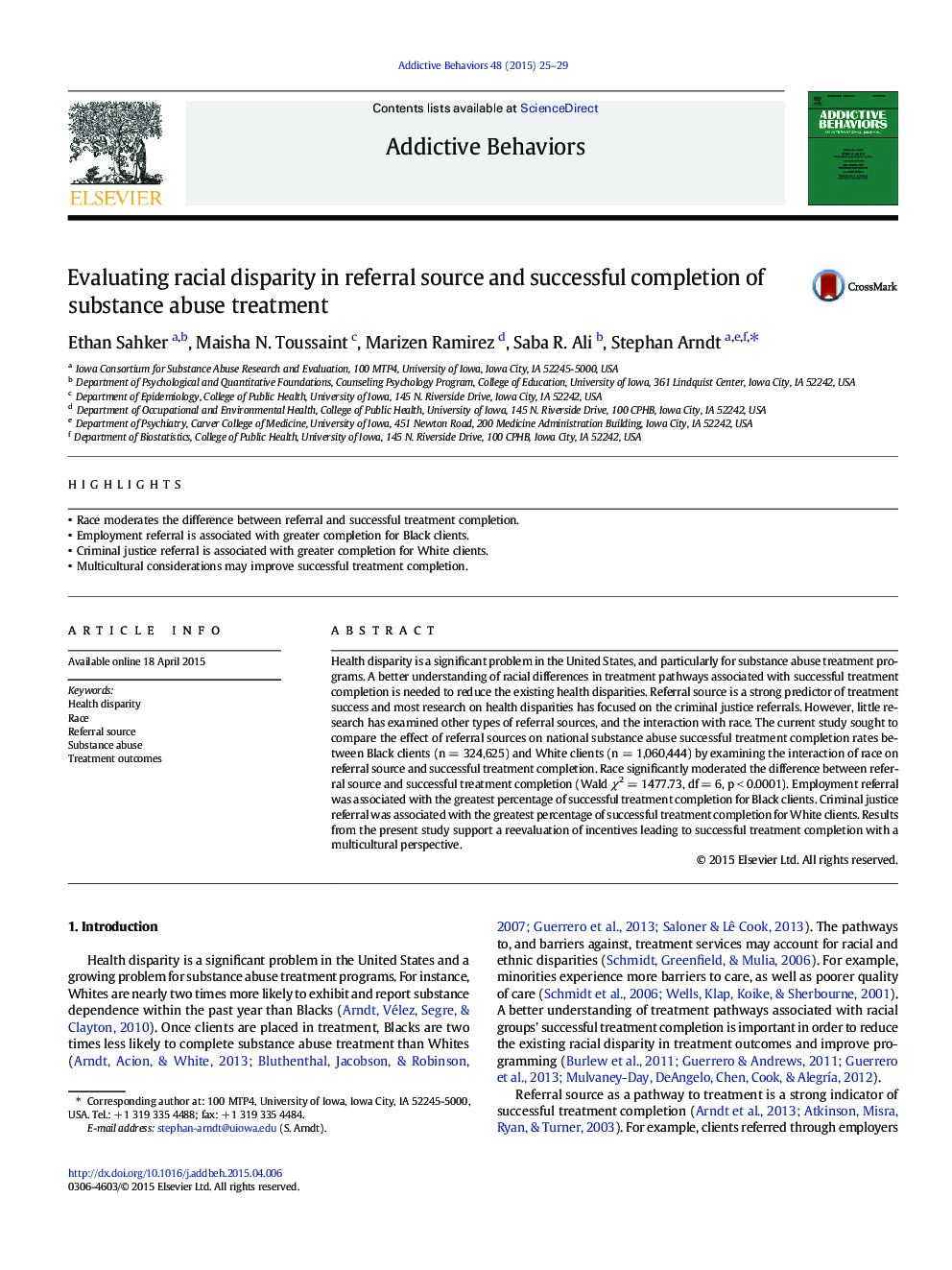| Article ID | Journal | Published Year | Pages | File Type |
|---|---|---|---|---|
| 898671 | Addictive Behaviors | 2015 | 5 Pages |
•Race moderates the difference between referral and successful treatment completion.•Employment referral is associated with greater completion for Black clients.•Criminal justice referral is associated with greater completion for White clients.•Multicultural considerations may improve successful treatment completion.
Health disparity is a significant problem in the United States, and particularly for substance abuse treatment programs. A better understanding of racial differences in treatment pathways associated with successful treatment completion is needed to reduce the existing health disparities. Referral source is a strong predictor of treatment success and most research on health disparities has focused on the criminal justice referrals. However, little research has examined other types of referral sources, and the interaction with race. The current study sought to compare the effect of referral sources on national substance abuse successful treatment completion rates between Black clients (n = 324,625) and White clients (n = 1,060,444) by examining the interaction of race on referral source and successful treatment completion. Race significantly moderated the difference between referral source and successful treatment completion (Wald χ2 = 1477.73, df = 6, p < 0.0001). Employment referral was associated with the greatest percentage of successful treatment completion for Black clients. Criminal justice referral was associated with the greatest percentage of successful treatment completion for White clients. Results from the present study support a reevaluation of incentives leading to successful treatment completion with a multicultural perspective.
